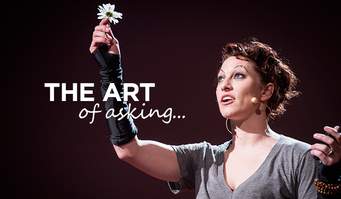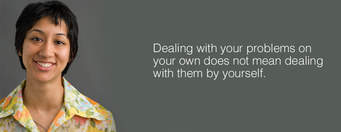
Imagine finding yourself in the unfamiliar position of having to care 24/7 for someone else, especially if you have been living a relatively independent life, with decisions made based mostly on your own needs first and foremost. It can certainly come as a shock. The immediate thoughts that would come to mind are, what services are there I might be able to use? Is there some financial help to deal with the medical issues that could come up? Is there some respite care should I need a break? How will I continue my career if I have to stay at home as a carer?
Many many more questions that need to be asked will show themselves over the coming weeks and months. The most important question however, will often remain buried somewhere out of the way. Do I know how to ask for what I need? Are you serious, you might be thinking. “Of course I can ask for what I need”. But can you really?
My son Rob was born 11 weeks premature to a young mum with two toddlers, extremely low self esteem, and a mentally abusive husband. I had been told more times than I can remember, that I was a failure, not smart enough, not good enough and on and on. The one thing I knew I did better than all else, was caring for my two young sons. I was a great mum and all my self confidence was tied up in my role as a mother. When Rob was born nearly 3 months premature, that illusion was shattered, firstly by my husband who made it known that Robs’ early birth had to be my fault, and then by myself when I believed him.
This was the first fork in the road. That life changing moment when you choose how to react, how to move forward, and how you deal with your circumstances. If you go down one path your way will be lit and sign posted clearly. If you go down the other you find unlit corners, and risk getting lost. I had been plunged into a new career as 24/7 carer, and faced with a path to choose, no knowledge, and no experience, I chose the more difficult.
You see there are always two directions when you come to a life changing situation. The path you take will lead you to success and growth through collaboration, understanding, and learning. Or it will lead you to illness, depression, fear, and uncertainty, through the harboring of guilt and unhealthy self doubt. The people in your circle unknowingly, will be a huge influence on which path you take. My circle was filled with negativity which was a breeding ground for the guilt I felt and the eventual path I would take.
I will delve into how the very first decisions you make about seeking help, feed into the relationships with all those who cross your path for many years to come. And finally I will discuss the one thing I would have done differently, and in my opinion, the most important tool in your box of strategies. The ability to communicate without doubting yourself.

If you take the path shadowed with guilt, which is easy to do, especially if you come from a place of low self esteem, you may internalize your fears and concerns, unable and unwilling to share them with anyone else. In my case my ability to raise my children was my total identity. To have a child with a disability would mean in my mind, the need to face the fact I wasn’t the best mother I could be. I couldn’t admit to myself there was a problem, which meant I couldn’t ask for help for a situation I wouldn’t acknowledge. When it became obvious to everyone around me, that Rob wasn’t developing as was hoped, I was able to heap even more guilt upon my shoulders. I clearly was a terrible mother, otherwise I might have better strategies in place.
I had given birth to my son so I was ultimately responsible for his place in the world. Should he have a difficult time over the coming years that would be my fault. It had to be my fault, there was no one else to blame. My husband agreed wholeheartedly with me. He made sure he let me know regularly. In fact he was only reinforcing what must be true. I was a failure as a mother and I deserved to feel the growing guilt because now I was also ruining my husbands life, along with my other childrens’ lives.
And so I chose my path. And unfortunately it isn’t a path less traveled. It is a path many more before me have chosen, and one I hope will be chosen less by those who might learn something from reading this. Once on this path the questions become different to the ones asked above. Will I be judged by professionals as incompetent? Will my friends want to be in my company now I am so busy? Will I ever have some independence again? How can I ever be happy when I have ruined so many lives? Will my husband leave me because I can’t make everything better? All negative questions that feed on each other and build self pity and ever more guilt.
Instead of looking for positive advice and direction based in experience or knowledge, we turn to denial, confrontation if suggestions are made, depression and withdrawal, and in my case obsessive exercise routines to try to fix Robs broken body. I wouldn’t leave the house for anything other than picking kids up from school, just in case a lack of therapy that particular day might stall some progress.
This in turn leads to alienating friends, family, and unfortunately even your spouse and other children. Each of these people have their own concerns about not only your child, but you yourself. They in turn have no idea how to communicate with you. Eventually those people come around less and less. Your relationship with your spouse suffers incredible pressure, and your children begin to wonder why your attention is not on them as much as they would like.
Because of the stress we put ourselves under when we feel emotions we don’t express in a positive way, deep down inside we fully expect life to become harder, not easier. We begin to imagine the future as not looking good, and that, in itself causes more guilt. I believed at one time I had ruined Robs life, along with my other childrens’ lives, alienated my friends, and found myself divorced because I wasn’t good enough for my husband. How lucky he was to get out. I thought my history was pretty unique until I met others who had taken the same path.
You might think a stern talking to could help change a chosen direction. But when in this thinking pattern, it will often take a huge jolt to make some changes. My huge jolt took 15 years to come with the diagnosis of breast cancer. I look back now and am actually grateful for the trauma that hit me at that time. It gave me a chance to choose a new path and turn my life around. For others that jolt may not be severe enough to shake their world. They can forever remain unable to move forward and shed their low self esteem and guilt. And by not so doing, they deprive the one they care for, and their family and friends, from learning how truly strong they are.
To have the strength to continue day after day, whilst putting your feelings and emotions aside, takes great stamina indeed. If you move forward in positive ways however, you can take that strength and help others negotiate their path. You can make a real positive change to so many areas of your life. And you can inspire your friends, family, and others, to see the real benefits of being a caring and loving person.
The positive way to shed yourself of guilt is to understand that grieving cannot take place when guilt is present. Anyone who finds themselves caring for another to the extent that it changes their goals, independence, career possibilities and relationships, has every right to grieve for the opportunities they may see as now out of reach. Only someone filled with guilt and blocked from emotion, could sit back and say they have no feeling of loss.
Of course you will miss being able to do as you wish, fight for a promotion, go on that overseas trip. Who wouldn’t miss certain things they may have been planning. It is only natural, and the quickest way to deal with it is go through the grieving process, find some strategies, and make new plans based on your life as it is now.
But this process takes some honesty. It involves firstly admitting you have something to grieve over. The loss of potential for your child. The loss of bragging rights at school sports, and many other now distant goals. It requires discussing your fears, talking about your inner most thoughts, and above all, sharing how you feel with those closest to you, including your spouse who will be doing their own grieving. None of that can happen whilst you bury your emotions and hide your fears to falsely protect yourself from some imagined cause on your part.

My best piece of advice for anyone finding themselves in a life changing situation, is to make an appointment with a grief counselor. They will help you in ongoing and positive ways. The grieving process can remain blocked for many years when you have been traveling down the lesser path way too long. At the outset, seeing a counselor can help you in choosing the more positive path first up.
Sharing your thoughts and fears puts you in a place of strength, because quickly you will also learn to articulate your needs in a clear and precise way. If you need advice from a therapist, educator, or other professional, you will know what services will help you to improve a situation, rather than hoping others will have all the answers. When you talk to your friends they will thank you for saying could you do this for me, or if you visit at such and such a time you might be able to collect my groceries on the way, for instance. They want to help, they don’t know how until you ask. Everyone you interact with will be way more relaxed knowing you are fully in touch with the way to move forward. And as you grow into your role, the ability to have your point of view easily understood, becomes the norm.
When my son was born he stayed in the hospital for many weeks after I went home. I was never offered the chance to talk to a counselor in those early days. If it had been a part of procedure for people in situations like mine, the path I chose may have been positive from the outset. I know this necessity has become more common for parents of sick and premature babies these days. But for someone suddenly thrust into the role of caring for a parent, disabled spouse, or family member, grief counseling would be my number one piece of advice.
“Life is not the way it is supposed to be. It is the way it is. The way you cope with it is what makes the difference.”
Virginia Satir